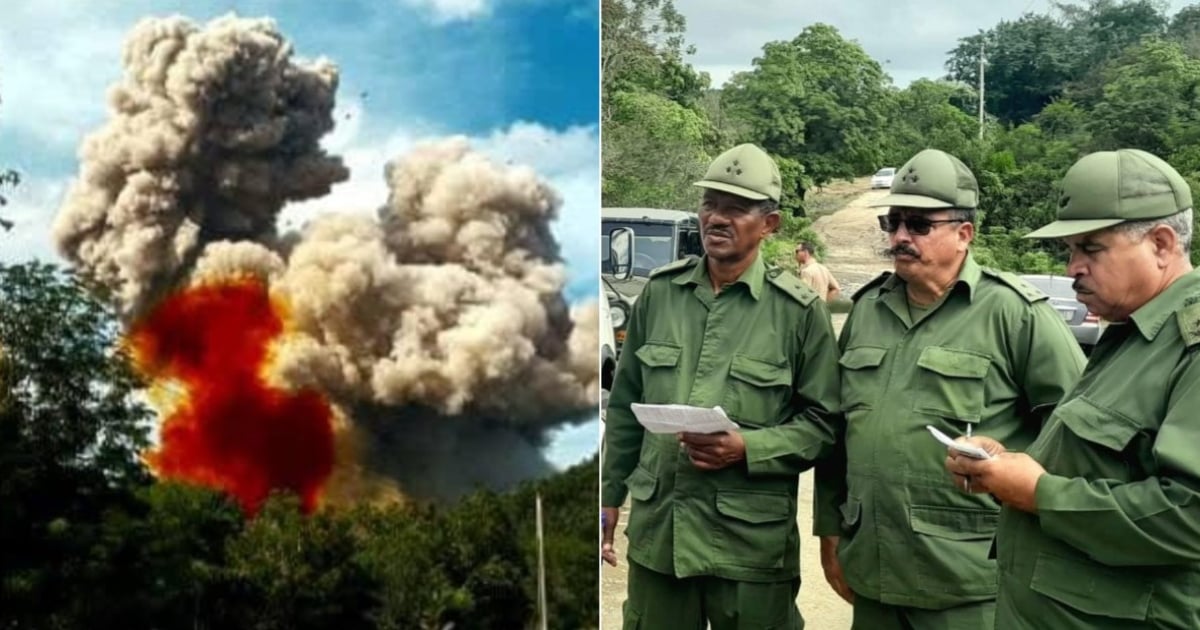The Cuban government's silence has been deafening in the wake of a tragic incident that occurred a week ago at a military unit of the Revolutionary Armed Forces (FAR) in Melones, a locality within the Rafael Freyre municipality of Holguín. Official reports indicate that 13 individuals, mostly young men fulfilling their mandatory military service, remain unaccounted for, igniting outrage among both families and the broader community.
Initial statements from authorities suggested that the explosions took place in a warehouse storing military material. However, officials warned that entering the site posed significant risks due to potential secondary blasts. Consequently, rescue operations have yet to commence, as reported by distressed relatives. A brief statement released on January 10 by the Ministry of the Revolutionary Armed Forces (MINFAR) claimed ongoing communication with the families, yet it failed to provide updates on the investigation's progress or any rescue attempts.
Desperation Among the Families
Among the missing is 20-year-old Héctor Adrián Batista Zayas from the La Pedrona neighborhood in Mayarí. Devastated by the news, his mother, described as "distraught" by neighbors, was hospitalized in intensive care. Independent media sources highlight the family's struggle, not only with their grief but also with the official silence and lack of information.
"It's heartbreaking to hand your child over to the state for military service only to hear they've vanished without a trace. There's not even a body to mourn," lamented a close friend. Like Héctor Adrián, eight other young soldiers were reportedly assigned to work in underground tunnels where dangerous materials were allegedly handled, despite lacking adequate training.
Allegations of Negligence
Families have accused the government of negligence and a cover-up. Social media testimonies and independent reports suggest that the conscripts were tasked with handling hazardous materials without the necessary training or equipment. Images shared by local residents depicted orange flames, potentially indicating the presence of chemical substances.
MINFAR stated that access to the site would be granted "once conditions allow," and authorized the return of evacuees to their homes after assessing no immediate danger. These assurances have done little to quell the anger of families, who argue that no concrete efforts have been made to locate the missing.
Rising Outrage
The incident has sparked a wave of criticism on social media and among independent outlets. A post by the platform "La Tijera" highlighted the names of the missing recruits and questioned the circumstances surrounding the accident.
"It's possible they weren't even aware of what they were transporting and handling. Anti-aircraft missiles, chemical weapons? Anything is possible," the post suggested, also condemning the abandonment felt by the families. The regime's secrecy is not unprecedented. Similar criticisms arose during past crises, such as the Hotel Saratoga explosion and the Matanzas supertanker base fire, where authorities were faulted for poor transparency and information management.
The Weight of Silence
The Cuban regime's tight control over information severely restricts access to reliable data regarding the incident. This lack of official communication fuels uncertainty and suspicion of a cover-up. Meanwhile, the families of the missing continue to demand answers and, more importantly, action.
"They haven't searched at all. They were told to wait 72 hours, but it's been over a week and nothing has been done," decried Jesús Antonio, uncle of Liander José García Oliva, another missing young man. In a situation where misinformation prevails, families bear the heavy burden of official silence, amplifying calls for justice and transparency. The tragedy in Holguín not only highlights the structural failures in the regime's crisis management but also the profound human cost of a system that seemingly values secrecy over truth.
Key Questions About the Holguín Explosions
What caused the explosions in Holguín?
The explosions reportedly occurred in a warehouse storing military materials, but the exact cause remains unclear due to limited official information.
Why have rescue operations not started yet?
Authorities have cited potential secondary explosions as a reason for delaying rescue operations, though families express frustration at the lack of action.
How have families of the missing responded?
Families have voiced outrage and accused the government of negligence and a lack of transparency, demanding more concrete efforts to locate their loved ones.
